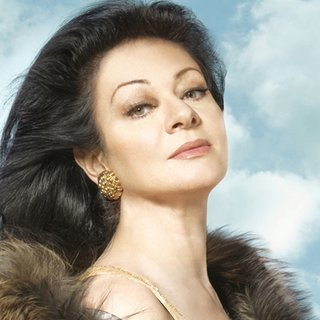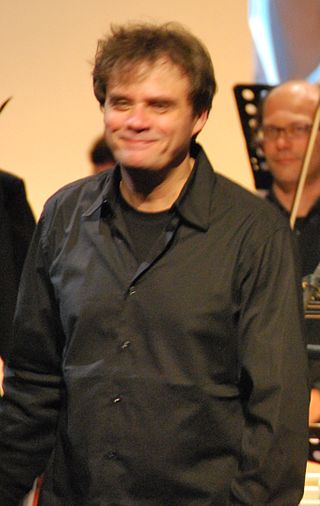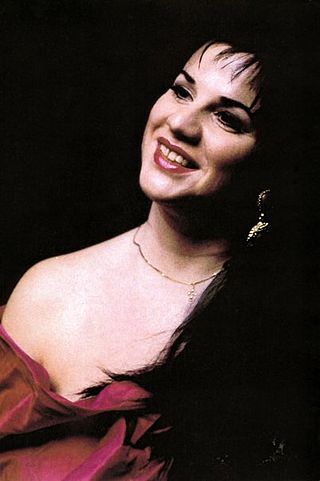
Giovanni Battista Draghi, often referred to as Giovanni Battista Pergolesi, was an Italian Baroque composer, violinist, and organist, leading exponent of the Baroque; he is considered one of the greatest Italian musicians of the first half of the 18th century and one of the most important representatives of the Neapolitan school.
Opera buffa is a genre of opera. It was first used as an informal description of Italian comic operas variously classified by their authors as commedia in musica, commedia per musica, dramma bernesco, dramma comico, divertimento giocoso.

Leonardo Leo, more correctly Leonardo Ortensio Salvatore de Leo, was a Baroque composer.

L'Olimpiade is an opera libretto in three acts by Metastasio originally written for an operatic setting by Antonio Caldara of 1733. Metastasio’s plot vaguely draws upon the narrative of "The Trial of the Suitors" provided from Book 6 of The Histories of Herodotus, which had previously been the base for Apostolo Zeno's libretto Gli inganni felici (1695). The story, set in Ancient Greece at the time of the Olympic Games, is about amorous rivalry and characters' taking places to gain the loved one. The story ends with the announcement of two marriages.

La serva padrona, or The Maid Turned Mistress, is a 1733 intermezzo by Giovanni Battista Pergolesi (1710–1736) to a libretto by Gennaro Federico, after the play by Jacopo Angello Nelli. It is some 40 minutes long, in two parts without overture, and was written as light-hearted staged entertainment between the acts of Pergolesi's serious opera Il prigionier superbo. More specifically each of the two parts, set in the same dressing room, played during an intermission of the three-act opera to amuse people who remained in their seats.

Daniela Dessì was an Italian operatic soprano.
Barbara Frittoli is an Italian operatic soprano, specializing in operas by Verdi and Mozart. She has sung leading roles in opera houses throughout Europe and in the United States, such as La Scala in Milan and the Metropolitan Opera in New York. Her signature roles include Mimì in La bohème, the Countess in The Marriage of Figaro, Donna Elvira in Don Giovanni, Desdemona in Otello.

Ottavio Dantone is an Italian conductor and keyboardist particularly noted for his performances of Baroque music. He has been the music director of the Accademia Bizantina in Ravenna since 1996.

Il prigionier superbo is an opera seria in three acts, composed by Giovanni Battista Pergolesi to a libretto attributed to Gennaro Antonio Federico, and based on an earlier libretto by Francesco Silvani for Gasparini's opera, La fede tradita e vendicata. It was premiered at the Teatro San Bartolomeo in Naples on 5 September 1733 and received further performances in October. The opera, with its labyrinthine plot involving the rivalry of Metalce and Viridate for the hand of Rosmene, soon sank into oblivion, but its comic intermezzo, La serva padrona was to achieve considerable success when performed on its own.

Maria Dragoni is an Italian operatic soprano active international career in major opera house from 1984 to present.

Maria Grazia Schiavo is an Italian classical soprano who is particularly known for her performances of music from the baroque period. She has performed with major opera houses in Austria, France, Germany, Italy, and Spain, and has appeared in concerts throughout Europe.

Juan Francisco Gatell (born November 28, 1978 in La Plata, Argentina Juan Francisco Gatell is an Argentinian operatic tenor who specialises in the bel canto repertoire.
Lucio Gregoretti is an Italian composer. He composed stage operas, symphonic and chamber music, electro-acoustic music, as well as incidental music for theatre plays, musical comedies, and film scores.

Il GiustinoRV 717 is a 1724 opera by Vivaldi set to a libretto by Nicolò Beregan, also set by Albinoni and Handel. The opera was composed for the 1724 carnival season in Rome and premiered at the Teatro Capranica.

L'Olimpiade is an opera in the form of a dramma per musica in three acts by the Italian composer Giovanni Battista Pergolesi. Pergolesi took the text, with a few modifications, from the libretto of the same name by Pietro Metastasio. The opera first appeared during the Carnival season of 1735 at the Teatro Tordinona in Rome and "came to be probably the most admired" of the more than 50 musical settings of Metastasio’s drama.

La contadina astuta, or Livietta e Tracollo, is an opera buffa composed by Giovanni Battista Pergolesi to a libretto by Tommaso Mariani. It was originally composed as an intermezzo for Pergolesi's opera Adriano in Siria but subsequently became popular in its own right and was performed throughout Europe. It premiered along with Adriano in Siria on 25 October 1734 at the Teatro San Bartolomeo in Naples.
Gennaro Antonio Federico was a Neapolitan poet and opera librettist. He is best remembered for his collaborations with G. B. Pergolesi including La serva padrona.

Amelia Felle is an Italian operatic soprano and voice teacher. Born in Bari, she has been active on the stages of Italian and European opera houses and concert halls since her debut in 1981. She holds the chair in vocal chamber music at the Conservatorio di Santa Cecilia in Rome, a position she previously held at the Conservatorio Tito Schipa in Lecce.
Serena Malfi is an Italian operatic mezzo-soprano.














